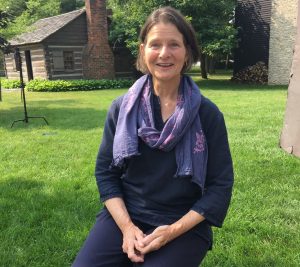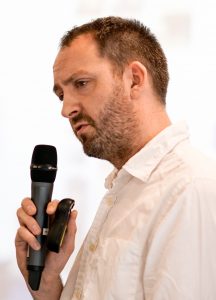Since 2020 was all about change, the Rural Museums Network took the bull by the horns and delivered its first online Conference, with the aim of delving in to some of our greatest concerns and offering practical solutions and support.
Over four weeks of sessions, we were delighted to be joined by fascinating panels who helped examine how rural collections and rural sites could respond to global environmental issues, Covid-19 and Black Lives Matter, as well as how the Rural Museums Network itself could support people to get the best out of their collections.
Looking back, we appreciate that although the conference has long since finished, the discussions that the sessions inspired remain ever-relevant. With that in mind, we thought we would post information on what was covered – a reminder to those who were able to join us at the time, and some handy hints and contacts for those embarking upon these themes for the first time.
Rural Places and the Great Beyond: Techniques for Linking Local Environments with Global Histories
Our keynote speaker for our opening session, Dr Debra Reid, launched the Conference with a clarion call to use local history and historical collections as the basis for taking a fresh look at global environmental issues and human relations today. As co-author of ‘Interpreting the Environment in Museums and Historic Sites’ (2019) she stressed that a process that is suitable to any rural museum involves research, collections assessment and development, and then puts the pieces together to build provocative environmental interpretation. Thinking about the environment with a history lens opens a whole new chapter of environmental literacy, that facilitates the transfer of knowledge gained from experiences with natural environments and natural resources to build a deeper understanding of historic resources.
This session was hosted by Dr Ollie Douglas, Curator at The Museum of English Rural Life, University of Reading.
Debra A. Reid grew up on a farm in Southern Illinois, on bluffs overlooking the Mississippi River. Her commitment to studying agricultural history and rural minority cultures found a home within the International Association of Agricultural Museums (since 1988) and the European Rural History Organisation (since 2010). She has spent her career working with history museums and teaching history, public history, and gender studies which she continues today as Curator of Agriculture and the Environment at The Henry Ford Museum, Michigan, and as an adjunct professor in the College of Agricultural, Consumer and Environmental Sciences at the University of Illinois. @AgriHist
Dr Ollie Douglas has worked at The Museum of English Rural Life, University of Reading, for over a decade where his role focusses on curation, interpretation, management, research access, and public engagement. During this time, he has both led and participated in numerous projects that have sought to reimagine rural heritage and museums in a range of creative ways. He sits on the Committee of the RMN and the Folklore Society. He is currently President of the ICOM-affiliated International Association of Agricultural Museums. @OllieDouglas


